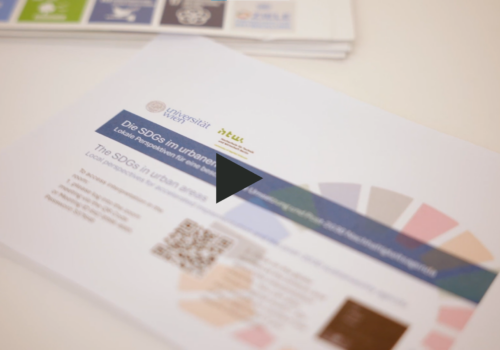The SDGs in urban areas - local perspectives for accelerated implementation and the post-2030 sustainability agenda
Cities play a key role in the implementation of the UN Sustainable Development Goals (SDGs), not least because they will be home to an estimated 2/3 of the world´s population by 2050. UN Secretary-General António Guterres emphasised that ‘our battle for global sustainability will be lost or won in cities’, highlighting that cities simultaneously face complex and major challenges and host key capacities and resources to manage them innovatively.
Urban actors across the global North and South, including local and national governments as well as civil society organisations, are appropriating the SDGs as a framework for implementing more sustainable forms of urban development. However, the 17 goals, their targets and indicators are also frequently critiqued for their contradictions and vagueness, difficulties in realising their transformative potential, and their dependence on voluntary measures.
In its first Voluntary National Report (VNR) on the implementation of the SDGs in 2020, Austria positively emphasised the underlying participatory process in its development, and the progress and achievement of numerous goals including the eradication of extreme poverty, safe access to water and the collection rate of municipal waste. However, the 2021 SDG Indicator Report by Statistics Austria also examined critical trends and showed, for example, that domestic material consumption of 19.1 tonnes per person is massively above the EU-27 average (14.1 tonnes) and that Austria´s contribution of 0.31% of gross national income for official development assistance is nowhere near the target of 0.7%.
In July 2024, the second Austrian Voluntary National Report (VNR) will be presented together with local and national reports from other countries at the United Nations High Level Political Forum in New York. We are taking this as an opportunity to hold a panel discussion on 8 July 2024 to discuss the speed and scope of changes in urban areas in recent years, as well as the indicators used and their relevance for sustainable development from different perspectives. Furthermore, panelists will discuss the role of cities and trans-local alliances for progress towards the 2030 sustainability agenda and beyond.
Further links
Panellist:
Dalilah Pichler, MSc, has been working as a research assistant and consultant for public management at the KDZ – Centre for Public Administration Research since 2019. She studied Business Administration at the Vienna University of Economics as well as Business and Public Governance at Erasmus University Rotterdam. Her current work focuses on organisational development and the analysis of municipal budgets, as well as research on the financing of services of general interest and the development of tools for implementing the SDGs at municipal level. She focuses particularly on the links between sustainability goals and municipal budgets
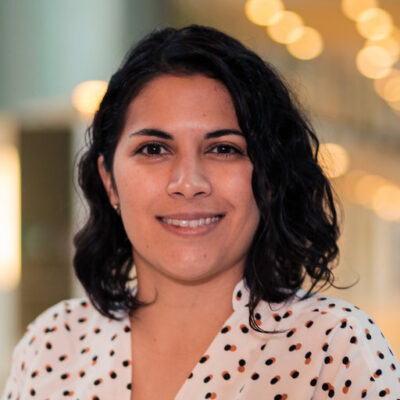
Dr. Klaus Reuter is the Managing Director of the Working Group on Agenda 21 in North Rhine Westphalia (LAG 21 NRW). For more than 20 years, the trained biologist and former research assistant to a member of the Bundestag has been shaping his expertise in the field of sustainability through work in practice and research. A particular focus of his work is on the transfer of international sustainability goals to municipal level sas well as the development and implementation of impact-oriented tools for the operationalisation of local sustainability management. Since 2015, Klaus Reuter has been the consortium leader of the Regional Network Centre for Sustainability Strategies West (RENN.west), a network of the German Council for Sustainable Development.
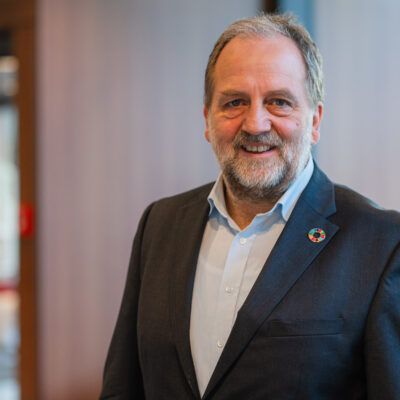
Alena Sirka-Bred is the Head of the Group for European and International Affairs at the Chief Executive Office of the City of Vienna. She has been legally qualified staff member of the Vienna City Administration since 1997:
- from 02/2017 Chief Executive Office of the City of Vienna Head of the Group for European and International Affairs
- from 2007 Head of Municipal Department – in charge of different legal topics (i.e. Data Protection, Information Law, Register Offices)
- from 2003 Chief Executive Office of the City of Vienna:, Executive Office of the Mayor
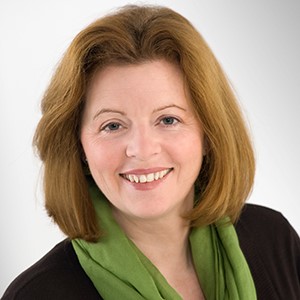
In April 2023, Lukas Wank took over the management of the AG Globale Verantwortung, an umbrella organisation of non-governmental development organisations which is part of the steering group of SDG Watch Austria. His expertise at the interface of development, peace and security policy is based, among other things, on his experience as former Deputy Director of the Austrian Centre for Peace in Schlaining, as founder of a non-profit think-and-do tank and as a political advisor, analyst and policy officer in international contexts. Lukas Wank led a humanitarian operation in Libya, was a political advisor in the context of European peace efforts in Bosnia and Herzegovina and received numerous international fellowships for his work.
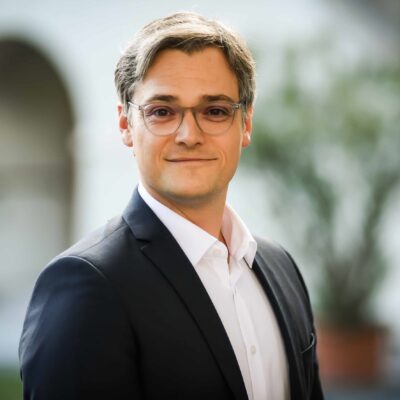
Alexandra Wegscheider-Pichler is a senior consultant and SDG coordinator at the Social Affairs & Living Conditions Division of the Population and Society Directorate at the Federal Office Statistics Austria, where she heads the project on the UN Agenda 2030 for Sustainable Development Goals, among other things. Her work focuses on sustainability research, especially on the topics Beyond-GDP and UN Agenda 2030. She is also part of international working groups such as the UNECE Expert Group on Statistics for SDGs and the Eurostat WG on Sustainability Indicators.
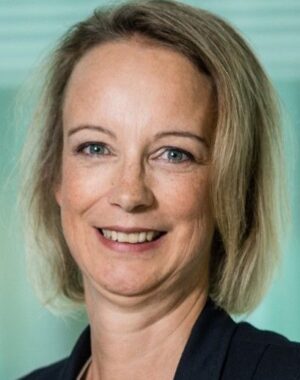
Moderators:
Kerstin Krellenberg is Professor of Urban Studies at the Department of Geography and Regional Research, University of Vienna. Her research focuses on cities, with a special interest in urban sustainability transformations, urban vulnerability and urban adaptation. Global environmental and digital change, the impacts on, and challenges and opportunities for cities are central to her work. She works both conceptually and empirically to better link theory and practice for sustainable urban transformation. Her aim is to develop integrative approaches through inter- and transdisciplinary cooperation. This includes for example the interaction of the UN Sustainability Development Goals (SDGs) or the socio-ecological-technical interactions in cities. Kerstin studied environmental sciences and received her PhD from Humboldt University Berlin and did her habilitation at the University of Leipzig, both in geography. Her regional geographic focus is on Latin America. At University of Vienna, she is among others acting as Climate Chair for the CircleU. alliance and member of the Environment and Climate Research Hub.
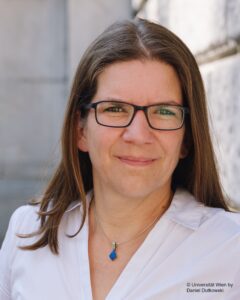
Florian Koch is Professor of Real Estate Management, Urban Development and Smart Cities at the Berlin University of Applied Sciences (HTW Berlin). He analyses how digital, smart technologies and social innovations can contribute to sustainable development in cities. He is the spokesperson for the HTW research cluster “Sustainable Smart Cities” and a guest researcher at the Helmholtz Centre for Environmental Research GmbH Leipzig, Department of Urban and Environmental Sociology. Sustainable urban development. Implementing the Sustainable Development Goals at municipal level ”.
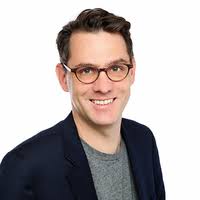
Organizers:
Kerstin Krellenberg, University of Vienna, Austria, kerstin.krellenberg@univie.ac.at
Julia Wesely, , University of Vienna, Austria, julia.wesely@univie.ac.at
Sarah Beyer, HTW Berlin, Germany, sarah.beyer@htw-berlin.de
Florian Koch, HTW Berlin, Germany, florian.koch@htw-berlin.de
Time: 8 July 2024, 18:00
Venue: Nordbahnsaal, Die HausWirtschaft, Bruno-Marek-Allee 5, 1020 Vienna and online
Registration for on-site participation: https://geographie.univie.ac.at/sdgs
Registration for online participation: https://univienna.zoom.us/meeting/register/u5Avf-Chpj8sEtHAU8JE-VCtq69EJs3AwLNP
If you have any questions, please contact Julia Wesely at: julia.wesely@univie.ac.at
Wir weisen Sie darauf hin, dass während der Veranstaltung zum Zwecke der Dokumentation sowie ggf. Öffentlichkeitsarbeit gefilmt sowie fotografiert wird. Durch die Teilnahme an der Veranstaltung wird in die Anfertigung der Lichtbilder und deren Veröffentlichung zum Zweck der Öffentlichkeitsarbeit auf der Website und in Drucksorten (z.B. Folder) der Universität Wien sowie gegebenenfalls via Social Media (Facebook, Twitter, Youtube) zur Präsentation der Aktivitäten eingewilligt. Bitte informieren Sie uns per e-mail, falls Sie nicht zustimmen.

